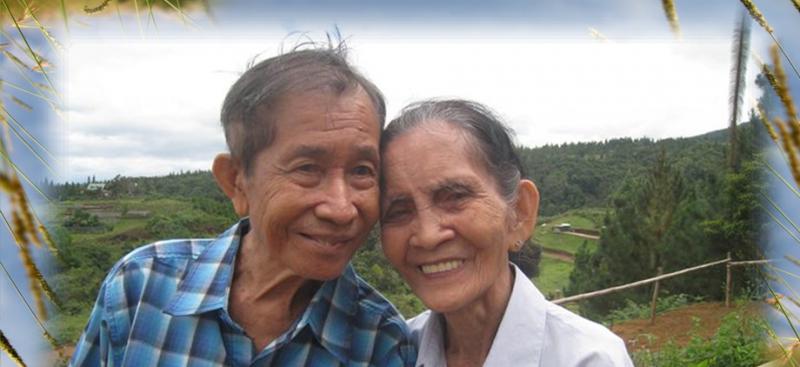Reflections On Silence And Word: Path Of Evangelization, Theme For World Communications Day 2012
By Vissia Hernandez
Last May 12, I attended a seminar organized by the Social Communications Ministry of the Archdiocese of Manila which recognizes the boundless potential for Evangelization in utilizing Parish-level communications media (newsletters, websites, bulletin boards, videos including social media: text, Facebook, Twitter, , etc). We were celebrating, a week in advance, the 46th World Communications Day, established by Pope Paul VI as a consequence of Inter Mirifica, the 1963 Decree on the Media of Social Communications of Vatican II, to coincide with the Solemnity of the Ascension when Christ directed His apostles to ‘Go into the whole world and proclaim the gospel to every creature’ (Mk 16:15).

As expected, the Mass celebrant, Archbishop Luis Antonio Tagle of Manila expounded on Pope Benedict XVI’s chosen theme for WCD 2012 – ‘Silence and Word: Path of Evangelization’. It was a beautiful homily on a profound theme which, sadly, was not relayed to most of the worshipping communities on Ascension Sunday (if my informal Monday survey over lunch, is any indication); so I have decided to share some of the highlights of the Pope’s and Archbishop’s messages and my own reflections. The full text of Archbishop Tagle’s homily is here.
When heard for the first time, the concept of ‘silence and communication’ it seemed to be a contradiction in terms and a surprising choice for a theme for World Communications Day. But the Pope’s message teaches how silence is often overlooked as an essential element of communication.
In his homily, Archbishop Tagle posed the premise, ‘John the Baptist was the voice crying out in the wilderness. A word is devoured in the wilderness as it loses itself in the silence. (‘Ang salita mo uuwi sa katahimikan. Ang salita mo lalamunin ng kalawakan upang maging katahimikan’). In the eyes of a pragmatic world, that word has become useless because it disappeared. It is tantamount to saying that John the Baptist was useless.’ Then the Archbishop asked, ‘But was he useless?”’
Of course, we who continue to hear John the Baptist’s messages reverberate across the centuries and from across the world, know the answer. He who speaks for God, even in the wilderness, even if he was silenced, is always heard by God who in turn communicates His Word.

St John the Baptist in the Desert, Tanzio Da Varallo
THE VALUE OF SILENCE
The Archbishop then cited occasions when silence enhances communication in our daily lives.
In silence, we are able to filter truths and nuances from the deluge of information around us and fully develop our thoughts. I am reminded of brandy in oak barrels, ripening and maturing in silent cellars.
In the silence of active listening we learn in the process to appreciate other people’s stories, their dreams, their fears, even stories they are unable to tell, and with open minds and hearts we learn to appreciate the storytellers themselves. I remember meeting a former college professor. For two hours she wove one engaging story into another like a modern-day Scheherazade staying her execution for 1001 Arabian Nights. I was quite busy then but I decided to listen encouragingly as, somehow, I sensed that beneath her animated stories, was a desperately lonely person.
At times we may have to lend our voices to tell other people’s silent stories. The following excerpt from a poem of a former Jesuit seminarian could well have been spoken by those who have been silenced by abuse and fear, injustice and neglect, poverty and ignorance. May we have the courage to be their voices.
Please listen carefully and try to hear what I am not saying,
what I’d like to be able to say,
what for survival I need to say,
but what I can’t say.
In the silence of shared affection, thoughts are communicated with a glance, a touch, the gift of presence; thus sensitivity toward and consideration for the other are heightened and relationships deepen. Elderly couples always attract my attention whenever they come for the Masses in St John Bosco; how heartwarming it is to see them hold hands while quietly sitting, walking, or being wheeled in on wheelchairs.
In silent introspection, as we listen to ourselves, to others and to our God, we discover and value who we truly are; as such, when we do speak we also value our words, mean and keep them.
THE DANCE OF WORDS AND SILENCE
Mutual listening is essential to developing relationships.
If relationship is a dance, the ‘dancers’ must maintain a graceful choreography, balancing between word and silence to allow shared knowledge and understanding to grow. Too little silence and they step on each other’s toes, while too much silence may be perceived as indifference to the choreography and to the other dancers. Eventually, in both cases, the dance sadly stops
SILENCE AND GOD

The beginning of the Gospel of St John, Book of Kells
Across religions, devotees have put a premium on setting time and space apart for silent prayer, and quiet contemplation of what they understand to be God’s Word, be it the Bible, Torah, Quran, Vedas or Dhammapada. And whether we apply ourselves to Bible Study or Lectio Divina, we do so to ‘listen’ to God’s voice, though, more often than not, God speaks to us with the voice of silence.
The Holy Father spoke of the ‘eloquence of God’s love speaking in silence’ as His Son died, seemingly abandoned on the Cross. He then quoted from one of my favorite readings from an ancient homily on Holy Saturday by an unknown author, ‘After Christ’s death there is a great silence over the earth, and on Holy Saturday, when “the King sleeps’ and God slept in the flesh and raised up those who were sleeping from the ages” (cf. Office of Readings, Holy Saturday), God’s voice resounds, filled with love for humanity’.

Blessed Sacrament Chapel, Cathedral, Chihuahua, Mexico
Quiet realization dawns . . . God communicates in silence not just because our human faculties are puny and woefully limited to receive, much more, fully comprehend the ‘the breadth and length and height and depth’ of the Divine, but more so, because, God is Love, thus, a relationship with Him is infinitely better experienced. ‘To know the love of Christ that surpasses knowledge, so that you may be filled with all the fullness of God (Eph 3:19)’.
‘In silence, we discover, the possibility of speaking with God and about God’.
We sincerely thank Him for this privilege and, yes, that of listening to others speak about Him in beautiful homilies.
Trailer to Into Great Silence, a documentary on the life of the Carthusian monks of Le Grande Chartreuse by Peter Gröning (2005)
